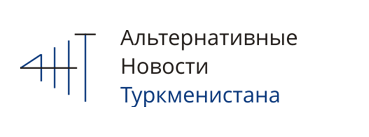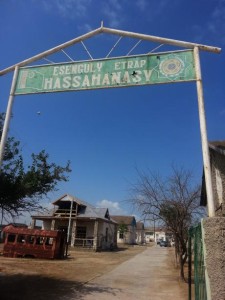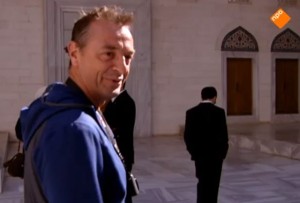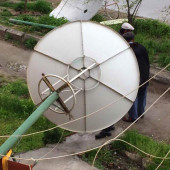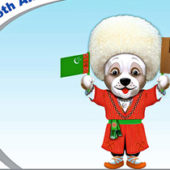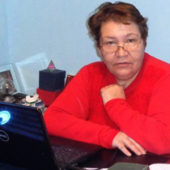Foreigners who read Turkmenistan’s official media might well get the impression that everything in the country is just fine: stable economic growth, new infrastructure, achievements in education, science and sport. Local media outlets never publish critical material, especially anything critical of the government; there are no statistics on crime, corruption, or other negative phenomena, even natural disasters. But that does not mean these things do not exist.
In January of this year, a mother killed her young children in the district capital of an eastern region of Turkmenistan. She killed them in a particularly brutal fashion, using a construction drill. She then killed her husband and then herself. Apparently, she was hearing voices…. The whole town is talking about the case, and the police are investigating, yet not a single word has appeared in the press. In any other country such an event would have been headline news, and TV programmes would have invited psychologists, psychiatrists, politicians, social workers, and the family’s neighbours into the studio to discuss the incident. But not in Turkmenistan – here, everything has to be just fine.
Keeping schtum
We like to boast that people in Turkmenistan do not pay for drinking water but we remain silent about the fact that two out of five regions regularly go without running water for days on end, and that the quality of water is such that people who can, prefer to buy bottled water. We like to talk about the newly-built dental surgery in Ashgabat that is shaped like a tooth but we keep schtum about the fact that a third of the surgery’s patients who undergo serious operations leave with Hepatitis C.
Indeed, there is much to talk about when it comes to healthcare in Turkmenistan. The State is busy building grandiose hospitals and polyclinics decked out with the most advanced Western equipment but the doctors who work there do not know how to operate it, and thus the equipment sits around in its packaging, collecting dust. Anyway, these modern medical facilities are meant only for the capital and for the regional administrative centres. In rural areas – where foreigners hardly ever set foot – hospitals have not been renovated since Soviet times, and they regularly lack water to wash the floors, and bathe patients. Despite an acute shortage of trained medical staff, the Deputy Minister for Healthcare Murad Mamedov repeatedly tells doctors at meetings that there is no need to go abroad for experience as ‘we’re clever enough ourselves.’ It is for this very reason apparently that foreign medical specialists are not invited to Turkmenistan. The real reason for the ban on doctors, however, is well-known: it allows bureaucrats to prevent the leaking of unfavourable information about infectious diseases, child and maternal mortality rates, and health epidemics. In Turkmenistan, everything has to be just fine…
Over the 20 odd years since independence, Turkmen society, especially the younger generation, has received only one-sided, embellished and adulterated news from an official media divorced from reality, and under the thumb of President Gurbanguly Berdimuhammedov. It is just like it was in the Soviet Union: readers are monotonously fed one viewpoint, the viewpoint of one person. Other views and opinions simply cannot exist, and if someone somewhere says the truth, then this alternative view is treated as rumour, gossip and speculation, and the person who dared to express it is automatically painted as a detractor, a libeller, or an outcast.
Over these last decades, an entire generation has grown up which, like the media and the authorities themselves, is forced to be jubilant, to look only at the façade of life, trying to ignore the negatives. Even when these negatives affect someone personally, people collectively remain silent, convincing themselves that it is just an aspect of life, and hardly the end of the world. The fear of being imprisoned or vilified by society has, over time, encouraged people in Turkmenistan to keep their mouths shut, to distance themselves from anything that the authorities might not like, and which might damage their own reputation; and to refrain from reading or taking in anything that might diverge from the official line. Nonetheless, despite the constant internal fear and the denial of all things negative, there are readers who carefully follow independent news about Turkmenistan, published on social media. Moreover, such people are, fortunately, growing in number all the time.
Censorship and control
There is no independent media in Turkmenistan. Official journalists carefully filter the topics for their articles through an internal censorship system, editors remain vigilant, and are actively censored by the government agencies that own the various newspapers. Teacher’s Newspaper, for example, is owned by the Ministry of Education while the newspaper Spravedlivost’ [Justice] is owned by the Ministry of Justice. These ministries have a captive audience – they force all their employees to subscribe to their newspapers. No-one cares whether they read them or not, but every month a certain sum is deducted from their salary to cover subscription costs.
Freelance journalists for foreign media outlets are kept under almost 24-hour surveillance. The rare trips made by Western journalists to the country are like a breath of fresh air; it is through their reports that foreign audiences can get to see the real Turkmenistan. In spring of last year, one such reporter was Belgium’s Tom Vaes. The Turkmen authorities officially invited him to visit the country, and to tell his audience how wonderful it is. But Vaes began to have doubts about the trip before it even began. The invitation letter he received from the Turkmenistan embassy in Belgium included a minute-by-minute schedule for Tom and his film crew. During the trip they were forbidden from filming the President, poor people, the dilapidated buildings, and… donkeys! In the resulting 45-minute-long documentary, these journalists showed the true nature of Turkmen state censorship: from banning the filming of an empty hotel breakfast room to the absurd control measures of Turkmen intelligence agents at an Ashgabat bazaar where they hurriedly covered up the unsightly (according to the agents) stalls in green cloth. The journalists also filmed their vigilant minders, all dressed in identical black suits, as they pinched the hips of elderly women to get them out of the frame of the camera. Another group of ‘security guards’ frantically removed out of sight, all basins, buckets, cloths, and brooms. Words cannot do justice to this spectacle – it must to be seen to be believed.
Foreign print media have been banned in Turkmenistan since the beginning of 2002, which is why every family has its own satellite dish, and sometimes two or even three. People pick up alternative news sources from Russian, Turkish or European TV channels, while more tech-savvy citizens manage to get around the state internet filtering systems and find news online. As people in Turkmenistan say, too many sweeties, meaning state TV where everything is just fine, can quickly make you sick.
ATN (Alternative Turkmenistan News)
In response to this barren media landscape, an offshore civic media initiative called Alternative Turkmenistan News (ATN) was created in February 2010 Initially its goal was to act as an information resource to readers within the country, as all other online media were being controlled by the sole internet communications operator, ‘Turkmentelecom’, a state-owned company. On a weekly basis, ATN would copy news from different websites into a single file, and then send it as an email to 300 or so people inside Turkmenistan. In a short period of time the number of subscribers increased tenfold and readers themselves began sharing facts and their own observations. This information provides the basis for what has become a unique news source. People write about everything: cases of injustice, the arbitrary behaviour of security agencies, about rampant corruption, lack of water, the illegal demolition of housing, illegal requests for money to buy textbooks, damaged roads; and about having to assemble goodness knows where at four or five in the morning to meet the President who will invariably only arrive at around midday.
They are not journalists, neither do they deliberately seek out ‘dirt’ – they have a need to tell the authorities about their problems. For this, however, they are attacked, threatened with job loss or expulsion from university. They are also emphatically advised not to communicate with ‘detractors’ or to like articles and photos published on social media sites which the authorities believe give a bad name to Turkmenistan and its people. People are dissuaded from communicating via the internet as their careers, the well-being of their children – indeed of all their relatives – are at stake if they fail to heed the advice of the security services. The Soviet practice of collective punishment flourishes in Turkmenistan to this day. Just a few years ago, it was very rare to hear about such things in Turkmenistan, especially about cases of torture and injustices in the prison system. But now people have an outlet where they can share their problems, in the hope that someone might hear them and provide help. Despite the real fear of retribution for saying too much, Turkmen citizens – fed up with the excesses, incompetency and couldn’t-care-less attitude of Turkmenistan’s bureaucrats – are trying to find justice via independent media such as ATN and human rights organisations.
Recently, the Turkmen Service of Radio Svoboda (a project of Radio Free Europe/ Radio Liberty) has been providing an additional outlet for people to speak out. They communicate with de facto illegal radio journalists: brave reporters, many of whom have been previously detained and subjected to ‘preventive conversations.’ These journalists work without official accreditation – radio journalists in Turkmenistan cannot get accreditation, despite what the law might say. Nevertheless, more and more voices are being broadcast across the radio waves, and some people are even prepared to talk on camera. Fed up with their lot, they feel they have nothing left to lose and they want to be heard.
Today, ATN’s project has expanded in scope and reach. Besides informing people inside Turkmenistan, we try to provide objective news about the country for a foreign audience. This is done with the help of our readers – engaged individuals including civil servants, entrepreneurs, students, and foreign diplomats. The quantity and quality of our sources, as well as their geographic distribution across the entire country, means that we can cross check any facts from Turkmenistan and produce our own independent news.
One of our goals is also to bring information about cases of human rights violations to people and organisations that have the power to influence them. ATN actively cooperates on this with several international human rights organisations, and where possible runs advocacy events together with representatives of the European Union, the Organisation for Security and Co-operation in Europe, and international financial institutions, among others. Since last year, we have also been providing a new translation service. We translate material from Radio Svoboda from Turkmen into Russian so that people outside the country might learn more about Turkmenistan. We also translate foreign-language resources for our Turkmen readers. Indeed, we translated Tom Vaes’ 45-minute-long film into Russian so that people in Turkmenistan might see a different representation of their country. After all, they will not be showing the film on TV in Turkmenistan – here, everything is just fine.
This article was originally published on May 30, 2014 on Open Democracy.
